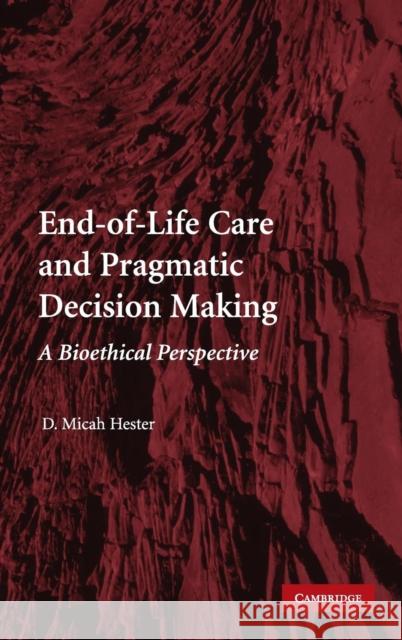End-of-Life Care and Pragmatic Decision Making » książka
End-of-Life Care and Pragmatic Decision Making
ISBN-13: 9780521113809 / Angielski / Twarda / 2009 / 200 str.
Every one of us will die, and the processes we go through will be our own unique to our own experiences and life stories. It is reasonable to reflect on what kinds of dying processes may be better or worse for us as we move toward our end. Such consideration, however, can raise troubling ethical concerns for patients, families, and healthcare providers. Even after forty years of concerted focus on biomedical ethics, these moral concerns persist in the care of lethally impaired, terminally ill, and inured patients. End-of-Life Care and Pragmatic Decision Making provides a pragmatic philosophical framework based on a radically empirical attitude toward life and death. D. Micah Hester takes seriously the complexities of experiences and argues that when making end-of-life decisions healthcare providers ought to pay close attention to the narratives of patients and the communities they inhabit so that their dying processes embody their life stories. He discusses three types of end-of-life patient populations adults with decision-making capacity, adult without capacity, and children (with a strong focus on infants) to show the implications of pragmatic empiricism and the scope of decision making at the end of life for different types of patients."











